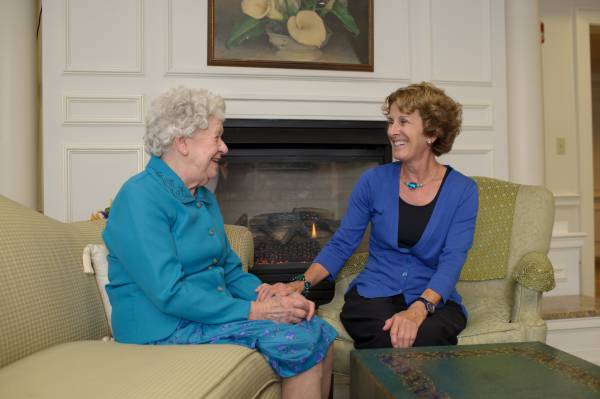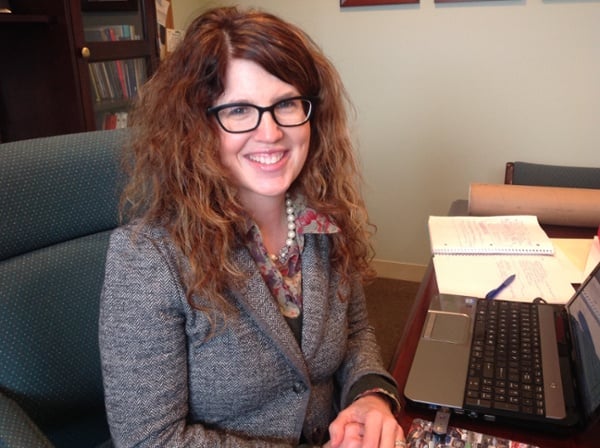7 Terrible Pieces of Advice When Caring for Elderly Parents
united methodist homes | assisted living | independent living | Aging & Caregiving

At times rewarding and other times downright frustrating, caring for elder parents can be quite the challenge. Reaching out for advice from uncensored, untrained sources may not give you the solution you crave. Why? Because most often the perception surrounding what older folks can and cannot do are wrong—much like a generation gap—you feel you’re speaking another language and they feel misunderstood.
These seven (7) terrible pieces of advice are examples of what you should run far away from when caring for your elder parents.
Number 1: “Your parents are totally dependent on you, remember ‘once a man twice a child’”
The impression that seniors can’t take care of themselves—that they revert to childlike stages as they age—may have you searching for the nearest nursing home or assisted living care center. Many older people are able to maintain individual levels of independence, such as cooking, going to the grocery store and doing laundry, all at their own pace. Therefore, give them your love and support but be aware of any changes and be prepared to help find solutions when the time comes.
Number 2: “Your parents are senile; you must decide what’s best for them”
Even if you’re somewhat bewildered by the decisions your parents make, it doesn’t mean they’re suddenly senile and can’t make decisions on their own. Note, the natural process of aging does not come with senility; this is a false and offensive stereotype. Therefore, involve your parents in any decision that directly affects their well-being, especially the milestone of transitioning to an assisted living care center.
Number 3: “Speak loudly when communicating with your senior parents”
Don’t aggravate your elderly parents by assuming they are automatically hearing impaired; this is false. Do not shout while in their ‘personal space.’ If they’re ignoring you, it may be with good reason. Speaking clearly is always helpful and always make eye contact!
Number 4: “Seniors are ‘stuck in time’ and refuse to adapt to new things”
Many older adults have adapted to the ever-changing high-tech world out there and are playing video games, joining online book clubs and frequenting dating sites. Try not to vex your older parents by treating them as intransigent; be sensitive while caring for them.
Number 5: “Home care is always safer than the alternative of an assisted living community or nursing home”
While many people prefer to stay in their own home, sometimes older parents ‘outgrow’ their environment and require more user-friendly facilities. The most important consideration is allowing your parents to hold onto as much of their independence as possible. Assisted living care is an intermediate level of care and may bridge the gap between independent living and skilled nursing care.
Number 6: “Medicare will cover the cost of assisted living”
While Medicare may cover some short-term qualified health care costs at the facility, it doesn’t generally cover the cost of assisted living care. Medicaid may cover some costs if you have limited income. Although some facilities offer funding options, be prepared to pay the cost of residential obligations.
Number 7: “Seniors are ‘tough skinned’ and not sensitive to changes
More than any other developmental stage, late adulthood is a time of heightened sensitivity. The deterioration of health, loss of home and death of a life partner or friends are some of the monumental losses seniors face. Sympathize with your parents, respect feelings of loss and give them time to adjust.
Key Takeaways:
- Many seniors are able to take care of basic needs but still be aware of what tasks they need assistance with.
- Senility is not a natural part of aging; seniors must have the freedom to make choices that affect them.
- Do not shout when communicating with seniors; many are not deaf.
- Many seniors keep abreast of modern technology and are not ‘stuck in time’.
- Seniors may ‘outgrow’ their home environment, needing more user-friendly facilities; evaluate on the basis of health promotion and independence.
- Medicare or Medicaid for the most part will not cover general residential living expenses for seniors.
- Older and wiser, seniors are more sensitive to grief or loss than you are.
Need Help?
To learn more about independent living, assisted living, memory care, short-term rehabilitation and long-term skilled nursing options at United Methodist Homes, please contact us.
About Elizabeth Bemis
In 1998, I drove past an assisted living community construction site, learned that it was part of United Methodist Homes and realized the next stop on my professional journey was to work for a mission driven organization. Soon after, I joined the team as Executive Director of our Middlewoods of Farmington community and later served as Regional Manager for the Middlewoods properties before accepting my current role as Vice President of Marketing, Promotions, and Assisted Living Operations. I enjoy spending time with my family, cooking, reading, walking, and love working alongside our staff, residents, and families to build strong communities that reflect the mission, vision, and values of United Methodist Homes.

Our Blog is a 2016 Platinum Generations Award Winner! The Generations Award is an annual international competition for excellence in senior marketing recognizing professionals who have communicated to the 50+ Mature Markets.



